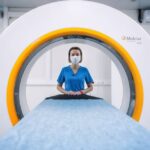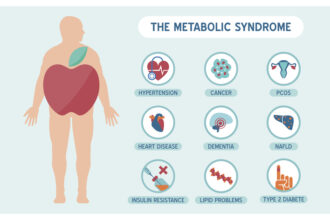The over-the-counter supplement nicotinamide riboside, a type of vitamin B3, demonstrated significant improvement in walking endurance for patients with peripheral artery disease (PAD), a chronic condition of the legs with limited effective treatments. A preliminary, randomised, double-blind clinical trial by scientists from Northwestern University and the University of Florida revealed that participants who took nicotinamide riboside daily for six months increased their timed walking distance by more than 57 feet compared to those on a placebo. In contrast, participants on the placebo experienced a decline in walking speed, consistent with the progressive nature of PAD affecting walking performance.
“This study suggests nicotinamide riboside could be beneficial for these patients,” noted Christiaan Leeuwenburgh, PhD, a senior author of the trial report and a professor at the University of Florida specialising in physiology and ageing. The collaboration with Mary M. McDermott, M.D., a professor at Northwestern University and an expert in PAD, involved a comprehensive team effort, and their findings were published in the journal Nature Communications on June 13.
Ninety participants, with an average age of 71 and diagnosed with PAD, were recruited for the study to evaluate the effects of nicotinamide riboside. While the supplement has gained popularity in anti-ageing treatments, with U.S. sales exceeding $60 million in 2022, its benefits have been poorly supported by evidence in healthy individuals. Nicotinamide riboside is a precursor to NAD, an essential compound in energy production, enhanced blood flow, and DNA repair processes within the body.
Given that PAD hampers energy generation in muscle cells, McDermott and Leeuwenburgh hypothesised that nicotinamide riboside’s capacity to boost energy production could alleviate walking difficulties associated with the disease. The results supported their hypothesis, demonstrating that participants who adhered to the supplement regimen saw an average increase of 23 feet in their six-minute walking test over six months, while those on placebo experienced a decline of 34 feet. Participants who consistently took at least 75% of the prescribed nicotinamide riboside pills achieved even more significant improvements, adding over 100 feet to their walking distance compared to placebo recipients.
PAD affects more than 8.5 million Americans aged 40 and older, primarily due to arterial fatty deposits compounded by conditions like diabetes and smoking, leading to reduced blood flow to the legs and resultant pain during walking. While supervised walking exercise is the primary therapy for PAD, access to such programmes remains limited for most patients.
Looking ahead, Leeuwenburgh aims to expand their research with more extensive trials focused on PAD patients and to investigate nicotinamide riboside’s impact on walking performance in healthy older adults. “Before recommending nicotinamide riboside for healthy individuals, we must first test its effects in this population,” he emphasised, highlighting the need for further exploration into its broader potential benefits beyond disease-specific contexts.
More information: Mary M. McDermott et al, Nicotinamide riboside for peripheral artery disease: the NICE randomized clinical trial, Nature Communications. DOI: 10.1038/s41467-024-49092-5
Journal information: Nature Communications Provided by University of Florida








